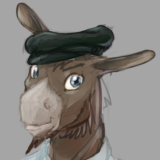Book Review - The Long Utopia · 6:37pm Jun 18th, 2015
I was sure I'd mentioned the Long Earth sequence in a blog at some point, but a quick search says nope.
Odd.
The Long Earth was a concept novel. A collaboration between Stephen Baxter (of Xeelee Sequence fame and the NASA series amongst others) and Terry Pratchett (who walks the endless desert yet), it described a world in which people could "step" into parallel realities, each subtle different from the last, spanning to infinity, with one supreme difference to our own: there were no humans. We only lived on one single world, the Datum Earth as it became known.
It was a novel of exploration, both of the infinite variances of the world they had created, and of the changes that world wrought upon the expanding waves of human colonizers across the Long Earth, and on the people that remained behind on the Datum. It offered so much potential.
In The Long War that potential appeared to be well on its way to fulfilment. The Long Earth negates the concepts of war, government and just about everything. When resources are infinite, when you can simply step away, it is impossible to impose any sort of centralised control. Even with the advent of airships that could travel thousands or millions of worlds in minutes, the idea of projecting force becomes useless when the people you are attempting to control can simply disappear.
The Long Mars took the concept further, to explore another world, and promised explanations of how the Long Earth worked... explanations that never really appeared.
And then The Long Utopia came along, floundering around two major threads of plot that never truly resolved, and in truth simply could not be resolved in the mere 360 pages the book presented to the reader.
The numerology of coming 360 degrees in a full circle, ending where you began, was a nice touch that gave me a moment, but the price paid - the sacrifice of so much potential - was not something that could be mitigated.
I'm disappointed, something I never thought I'd say about either of these authors. This isn't even a case of Pterry's illness affecting things - he was clearly the conceptual half the team, leaving Baxter to do the actual writing. This sort of high-concept science fiction is Baxter's strength, normally. His best books have been either expansions of the ideas of others - for example, The Time Ships, which explored ideas incredibly similar to The Long Earth, or The Light Of Other Days - or the high-concept "sequences" like the NASA sequence, a series of hard scifi books that covered different potential paths NASA's space program, using the same set of characters; or Destiny's Children, where the books were only conceptually related without being actual sequels, or even taking place in the same "world".
It was... unsatisfying. That's all there is to it in the end. Conceptually brilliant, and as a social study of how mankind would react to infinite resources and infinite space it is hard to surpass, but perhaps the concept itself was simply too large and the story spread too thinly across it to ever truly satisfy the reader.



Eh, I've had mixed feelings about Baxter's other series. A fair number of Sci Fi authors have issues with endings (Alastair Reynolds springs to mind, and Arthur C. Clarke). It certainly sounds interesting...would you say it was worth a read despite the flopping at the end?
The description of interactions through a many-worlds universe reminds me a little of Greg Bear's universe involving The Way--though it was a lot more limited, it did eventually touch on infinite-resource endgame stuff.
3160644 I'd thought about a comparison with Greg Bear, but it's really not the same thing. They travel along a tunnel and access realities through wormholes or something. Here, there's just direct access to an infinite number of parallel worlds. Perhaps they were converging on similar ideas from different directions.
Anyway the first three are definitely worth a read for the concept alone. The last one, eh... if it were a bridge to another novel, it'd be worth it, but as it stands it's just a flapping pile of loose ends.
3160669
Clearly they were just leaving room for crossover fanfiction.